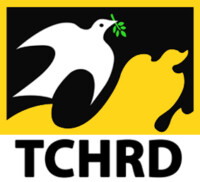 On 29 June the Tibetan Centre for Human Rights and Democracy (TCHRD) will release a code of conduct for businesses operating in Tibet. The code of conduct highlights the major human rights issues in Tibet and their human rights obligations. In 35 articles divided into eight categories, the code of conduct outlines how businesses can avoid contributing to or participating in human rights abuses in Tibet.
On 29 June the Tibetan Centre for Human Rights and Democracy (TCHRD) will release a code of conduct for businesses operating in Tibet. The code of conduct highlights the major human rights issues in Tibet and their human rights obligations. In 35 articles divided into eight categories, the code of conduct outlines how businesses can avoid contributing to or participating in human rights abuses in Tibet.
The code of conduct does not make any new demands or place extra requirements on businesses operating in Tibet. Instead, the code of conduct draws upon existing legal standards and standards accepted and endorsed by the People’s Republic of China (PRC). Since their release in 2011, the UN Guiding Principles on Business and Human Rights defined businesses’ human rights obligations. The Guiding Principles have been endorsed by the PRC. The code of conduct also draws heavily on the Chinese Chamber of Commerce of Metals, Minerals and Chemicals Imports and Exports (CCCMC) Guidelines for Chinese businesses operating outside of the PRC. Even though the CCCMC Guidelines are not official government standards, they have been endorsed by the PRC and held as an example of the PRC’s commitment to corporate social responsibility.
